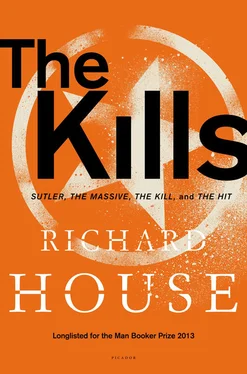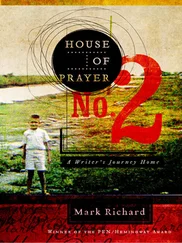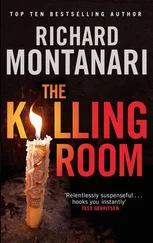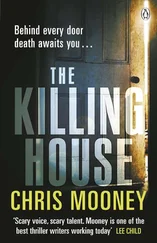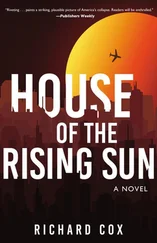Richard House - The Kills
Здесь есть возможность читать онлайн «Richard House - The Kills» весь текст электронной книги совершенно бесплатно (целиком полную версию без сокращений). В некоторых случаях можно слушать аудио, скачать через торрент в формате fb2 и присутствует краткое содержание. Год выпуска: 2013, Издательство: Picador, Жанр: Современная проза, на английском языке. Описание произведения, (предисловие) а так же отзывы посетителей доступны на портале библиотеки ЛибКат.
- Название:The Kills
- Автор:
- Издательство:Picador
- Жанр:
- Год:2013
- ISBN:нет данных
- Рейтинг книги:3 / 5. Голосов: 1
-
Избранное:Добавить в избранное
- Отзывы:
-
Ваша оценка:
- 60
- 1
- 2
- 3
- 4
- 5
The Kills: краткое содержание, описание и аннотация
Предлагаем к чтению аннотацию, описание, краткое содержание или предисловие (зависит от того, что написал сам автор книги «The Kills»). Если вы не нашли необходимую информацию о книге — напишите в комментариях, мы постараемся отыскать её.
The Kills — читать онлайн бесплатно полную книгу (весь текст) целиком
Ниже представлен текст книги, разбитый по страницам. Система сохранения места последней прочитанной страницы, позволяет с удобством читать онлайн бесплатно книгу «The Kills», без необходимости каждый раз заново искать на чём Вы остановились. Поставьте закладку, и сможете в любой момент перейти на страницу, на которой закончили чтение.
Интервал:
Закладка:
They walked deeper into the church and found the rock carved into columns and alcoves, humble in scale as if people might have been smaller; in places the ground remained rough and heavily fouled. Nathalie explained that the churches had survived because they were used as dovecotes and animal pens and he could easily imagine this, only when he looked up did the church regain its distinction. The ceiling carved as a dome and painted a dusty marine blue and crossed with stars. Beside the entrance full-sized portraits of Old Testament prophets stood shoulder to shoulder, with wild hair and wispy beards, eyes stabbed out, mouths shot with scratches. The lower sections were corroded back to the bare stone. She pointed at the men with beards and laughed. ‘Martin, no? So serious.’
‘Why did he interview your father?’
‘It was part of the project. When he first started he recorded police, magistrates, politicians, people who were involved with immigrants.’
‘So why your father?’
‘My father was a judge.’ Nathalie’s voice became dull, lost to the hollows surrounding them. ‘I want you to see something.’ She led Ford deeper into the church to a wall crossed into quadrants. ‘These are miracles from the New Testament.’ She pointed at the sections. ‘Feeding the five thousand. Water into wine. Casting out devils. And here, walking on water.’ At the centre of the painting Ford recognized a familiar white-robed figure, a picture-book Jesus. Painted larger than the other figures, he strode across a troubled sea. Deep umber shadows defined the man’s limbs beneath his tunic, his beard and hair. A white plate outlined his head. His fingers, long and delicate, poised in blessing. Behind this figure, the apostles cowered in their boat, small and childlike, their robes streaked blue, hands clasped in prayer. Beside the boat, almost inconsequential, a figure sank in panic, his arms raised, mouth open, waves threatening to overcome him. Nathalie brushed her hand close to the wall. ‘The story stops where he’s asking for help. It shows everything. The fishermen, the nets, the sea, but it stops at this moment.’
To Ford the man appeared secure. Wedged between waves, neither falling nor drowning. His fear of a different order. Not a horror of expectation, but a horror of what he endured.
‘My father was sick for a long time. The interview with Martin happened very late. I haven’t watched it. It’s difficult, of course.’
‘Do you interview people?’
‘No. I helped edit — before — but the idea is changed and different. Martin sets up the camera and people speak to it. The films are not edited now. They say what they want. It’s very simple and it works well. Sometimes they speak for two minutes. Sometimes twenty. And they say whatever they want. For some people it is a little like a confession. Some are not so good. And some people really show you who they are. It’s very intimate. Some have had experiences they’ve never spoken about. Many have lost families, or homes, or land. Some are in exile. Of course, he’s careful about the people he selects and he speaks with them for a long time before he records them, so there’s a kind of control, a kind of preparation. It’s not so hard because everybody has a story.’
From outside came an impatient pip rousing them back to the present. Nathalie shook her head, impatient herself. ‘How long have we been? Five minutes?’
* * *
Martin and Mehmet waited in the van. The honks continued as Nathalie and Ford walked back across the scree. Martin pointed at the churches with a petulant stab and Nathalie turned to squint at the cliff-face, then gasped, hand to mouth. My god. Could he see? ‘Up there. Right above where we were.’
It took Ford a moment to spot the cause of alarm, until a small movement high on the cliff face softly translated into a figure slung across a crevice in the rock. Eric climbed crablike, sideways and up, drawing himself over breaks and cracks with ease. Today he wore a light blue shirt with the same red star design. Almost at the top he lodged an arm deep into the rock then hung from it, turned and waved, loose and easy, and pointed to the road, signalling that he would meet them there. Nathalie gasped again and looked away.
As they clambered back into the van Martin asked irritably if they could possibly waste any more time.
‘I sent him to collect you, and look. Look what he does.’
When they picked Eric up at the road, Nathalie and Martin refused to speak with him.
* * *
That evening Nathalie sat with Ford. Martin and Eric took up the table and prepared the next day’s schedule.
‘It was strange today, thinking about my father.’ Nathalie turned the glass beaker to wipe her lipstick from the rim. ‘I think about him every day, but there isn’t always the opportunity to talk, so it becomes difficult to speak about him. When I was younger my parents did everything for us, my brother and my sister. So I wanted to be able to look after him. I had this idea in my head. I always thought that I would be able to look after him, but it wasn’t possible. I told myself that I was busy and that he needed attention from professionals; he needed people who knew what to do. I thought that it was temporary, just for this moment, and there would be time, and if he was in a place where they could care for him he would be — I don’t know now — safer? Comfortable? But he was very frightened. I always thought there would be more time, even when I knew this wasn’t possible; I thought that there would be a better opportunity, but things don’t work out as you imagine. What is awful is that there were always reasons to do one thing and not another, but these reasons disappear. You don’t remember them. They just go, and you’re left with what you did or didn’t do, and this idea that you didn’t do enough. The truth isn’t always so easy. You can’t think yourself back into that place that made everything how it was. I miss him very much.’
Ford could feel Martin’s attention. Nathalie leaned forward, the glass clasped between her hands, her voice now private.
‘Why don’t you ask me questions? You never ask questions. You are always so quiet. Is that what makes you so interesting? A man who listens but never asks questions.’
Ford shrugged in apology.
‘See? Do you mind if I ask? The woman you were travelling with, was she your wife?’
‘No.’
‘But you were married?’
‘I was with someone for a while.’
‘For how long?’
‘Seven years.’
‘You don’t have children?’ Her voice sounded small, without interest in a reply. ‘I have a daughter.’ She repeated the fact and nodded. ‘She lives with her father in Paris.’
They looked, both of them, at a bottle of wine on the paving at their feet, almost gone. Beside it Martin’s whisky, a blend not a single malt, which Ford thought telling about the man in some way — cheap or economic — but couldn’t decide.
‘I buy this wine in Paris.’ Nathalie tapped the bottle, fingernail against the neck. ‘The same wine. There’s a shop run by two men from Algeria. I used to see them every day, but I know nothing about them. Their wine was the same price as the wine from anywhere else, but I always believed I was saving money, because these men know nothing about wine so the prices are too low, so I’m always winning. I told myself that I was always one step ahead.’ She stroked her hair behind her ears.
‘Do you see your daughter?’
‘Yes. She comes to stay with me sometimes. Her name is Elise.’
‘And her father?’
‘It’s not possible to spend time with him.’ Nathalie set her shoulders forward, a slight move with a hint of exclusion. ‘At first we were not going to be together. I was to going to raise Elise. But after my father died, I don’t know, we thought that maybe we should try. It was a mistake. The whole idea. The world for him is very organized. We took two holidays to see if we could be together. The first in Thailand — we booked a hotel at a place called Ban Hai, and took a room on the beach facing the ocean — and it went, you know, it went well, but afterward he wasn’t so certain. I thought, maybe, I thought it was possible. It might work. I don’t know, so I persuaded him to move in. The next year we booked the same place for our second holiday, but there was a problem with the date, so we changed our minds. Elise was older and we thought we should try a different kind of holiday. Anyway, we changed our minds. Australia was Mathieu’s idea. So we found flights into Perth and out of Sydney. Have you been to Australia?’
Читать дальшеИнтервал:
Закладка:
Похожие книги на «The Kills»
Представляем Вашему вниманию похожие книги на «The Kills» списком для выбора. Мы отобрали схожую по названию и смыслу литературу в надежде предоставить читателям больше вариантов отыскать новые, интересные, ещё непрочитанные произведения.
Обсуждение, отзывы о книге «The Kills» и просто собственные мнения читателей. Оставьте ваши комментарии, напишите, что Вы думаете о произведении, его смысле или главных героях. Укажите что конкретно понравилось, а что нет, и почему Вы так считаете.
